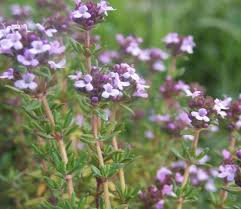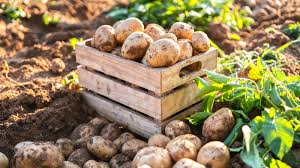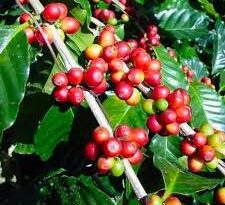Thyme Ovary: Economic Importance, Uses, and by-Products
Thyme Ovary is a part of the female reproductive organ (pistil or carpel) in a flower. It is the lowermost part of the pistil and is typically located at the center of the flower. The ovary contains one or more ovules, which are potential seeds. After pollination and fertilization, the ovary develops into a fruit, enclosing and protecting the seeds.
The structure of an ovary can vary among different plant species, and it may be described based on its position within the flower, number of carpels (ovule-bearing units), and other characteristics. Ovaries can be superior (above the attachment point of other floral parts), inferior (below the attachment point of other floral parts), or half-inferior (partly below and partly above). Ovaries can also be simple (consisting of a single carpel) or compound (composed of multiple fused carpels).
The Economic Importance and Uses of Thyme Ovary

Thyme is an aromatic herb that is primarily cultivated for its leaves and stems, which are used for culinary and medicinal purposes. While the ovary of thyme plants isn’t typically harvested or used in the same way as the leaves and stems, it still plays a role in the overall reproductive process of the plant. The economic importance and uses of thyme are primarily associated with its leaves and stems, but understanding the role of the ovary is essential for its propagation and cultivation. Here are some key economic and uses of thyme:
1. Culinary Use: Thyme leaves and stems are used as a culinary herb to add flavor to various dishes, including soups, stews, roasts, and sauces. Thyme imparts a savory, earthy flavor to dishes and is a common ingredient in Mediterranean and French cuisine.
2. Medicinal Use: Thyme has medicinal properties and is used in herbal remedies. It contains compounds like thymol and carvacrol, which have antimicrobial and anti-inflammatory properties. Thyme tea, tinctures, or extracts are used to alleviate respiratory issues, digestive problems, and as a natural antiseptic.
3. Aromatherapy: Thyme essential oil is used in aromatherapy for its potential therapeutic benefits. It is believed to have a stimulating and invigorating effect and is used in massages and diffusers.
4. Perfumery: Thyme oil is used in the fragrance industry as a component in perfumes and colognes due to its aromatic qualities.
5. Cosmetic Products: Thyme extracts or essential oils can be found in cosmetic and skincare products, such as soaps, lotions, and shampoos, for their pleasant aroma and potential skin benefits.
6. Insect Repellent: Thyme oil can be used as a natural insect repellent, particularly against mosquitoes and other biting insects.
7. Decorative and Ornamental Use: Thyme plants are grown in gardens and landscapes for their attractive, low-growing foliage and fragrant leaves. They can be used as ground cover or in rock gardens.
8. Essential Oil Production: The ovary of thyme is essential for the production of thyme essential oil. This oil is extracted from the leaves, stems, and flowers of the plant, and the ovary is an integral part of the reproductive system that leads to the formation of seeds.
Read Also: Thyme Leaves: Economic Importance, Uses, and by-Products
9. Culinary Propagation: Thyme can be propagated through seed, and the ovary plays a critical role in seed formation, ensuring the continuation of thyme cultivation for culinary use.
The Products and By-products That Can Be Derived From Thyme Ovary
Thyme, a popular herb used in cooking and for its medicinal properties, does not typically produce ovaries that yield a wide range of products and by-products. However, thyme does produce seeds, which are the result of fertilized thyme flowers. While these seeds are not as versatile as some other plants, they do have a few potential applications:
1. Thyme Seeds: Thyme seeds can be harvested from the plant once the flowers have dried and turned brown. These seeds are primarily used for growing new thyme plants.
2. Thyme Seed Oil: Thyme seed oil can be extracted from thyme seeds through a process known as cold-pressing. Thyme seed oil is used in some culinary applications, but it is more commonly used in aromatherapy, perfumery, and for its potential medicinal properties.
3. Thyme Leaves and Stems: The leaves and stems of the thyme plant are the most commonly used parts in cooking and herbal remedies. They can be used fresh or dried as a seasoning or for making herbal infusions.
4. Thyme Essential Oil: Essential oil can be extracted from the leaves and flowering tops of the thyme plant. Thyme essential oil is used for aromatherapy, as a flavoring in food and beverages, and for its potential health benefits.
5. Plant Residues: After extracting essential oil, the plant residues can be used as compost or mulch in gardening.
6. Dried Thyme: Dried thyme leaves are a popular culinary herb, commonly used in seasoning dishes.
In conclusion, while thyme as many products and by-products as some other plants, it is still a valuable herb with various applications in cooking, aromatherapy, and traditional medicine. The seeds, essential oil, and dried leaves are the primary products derived from the thyme plant.
Read Also: Benefits, Importance and Uses of Rubber Plant









